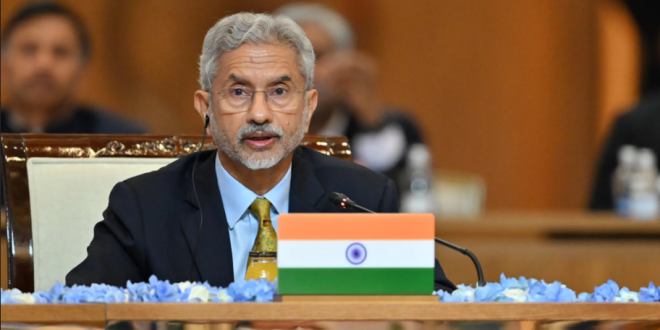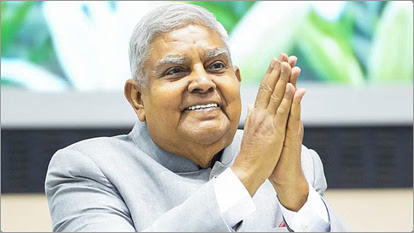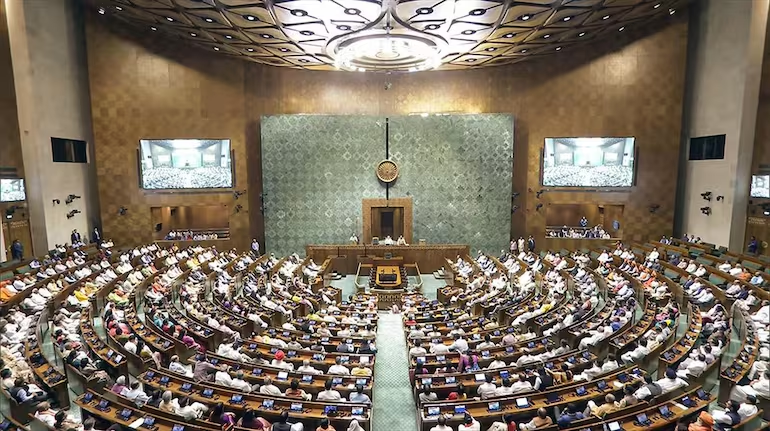External Affairs Minister S. Jaishankar delivered a pointed address in the Lok Sabha on Friday, March 28, 2025, spotlighting the persistent violence and discrimination against minorities in Pakistan and Bangladesh. Speaking during the Question Hour, Jaishankar underscored India’s proactive monitoring of these issues, detailing specific incidents and reaffirming New Delhi’s commitment to raising them on international platforms, while noting the limits of influencing deeply entrenched mindsets in neighboring countries.
Alarming Incidents in Pakistan
Jaishankar provided a grim overview of minority persecution in Pakistan, citing 10 specific incidents from February 2025 alone targeting Hindus. These included seven cases of abductions and forced conversions, two kidnappings, and a notable instance of police brutality against students celebrating Holi. He also highlighted three attacks on Sikhs: an assault on a family resisting forced conversion, death threats to another for reopening a Gurdwara, and the abduction and forced conversion of a Sikh girl. Additionally, two incidents involved the Ahmadiyya community—sealing of a mosque and desecration of 40 graves—while a mentally unstable Christian faced blasphemy charges.
“India is tracking very closely the treatment of minorities in Pakistan and making our position well known,” Jaishankar told the House, emphasizing that such issues have been raised at forums like the UN Human Rights Council. Responding to BJP MP Nishikant Dubey’s query about revisiting agreements like the 1950 Nehru-Liaquat Pact, Jaishankar noted that Pakistan has failed to honor commitments to protect minorities, rendering such pacts obsolete in practice. He added that since 2014, India has issued 50,019 long-term visas to persecuted minorities fleeing Pakistan, reflecting a sympathetic stance.
When pressed by Shiv Sena (UBT) MP Arvind Sawant on whether India would pursue “tough action” akin to Indira Gandhi’s 1971 intervention, Jaishankar quipped, “We as a government and a country cannot change the fanatical and bigoted mindset of a neighbor. Even Indira Gandhi could not do it.” He stressed that while India voices its concerns globally, altering Pakistan’s entrenched attitudes remains beyond its reach.
Concerns Over Bangladesh
Turning to Bangladesh, Jaishankar acknowledged a decline in reported attacks on minorities, from 2,400 incidents in 2024 to 72 so far in 2025. However, he described these figures as a lingering concern for India, particularly amid the political upheaval following Sheikh Hasina’s ouster in August 2024. “We track the welfare and well-being of minorities in Bangladesh as well,” he said, noting that he has personally raised the issue with his Bangladeshi counterpart, Foreign Affairs Adviser Md. Touhid Hossain, while Foreign Secretary Vikram Misri addressed it during his December 2024 visit to Dhaka.
The minister’s remarks come ahead of Prime Minister Narendra Modi’s scheduled attendance at the BIMSTEC Summit in Bangkok on April 3-4, where a potential meeting with Bangladesh’s interim leader Muhammad Yunus remains unconfirmed. Jaishankar sidestepped direct criticism of Bangladesh’s interim government, focusing instead on diplomatic engagement, though he acknowledged the “spate of attacks” as a factor impacting India’s perspective.
Political and Diplomatic Context
The Lok Sabha discussion saw bipartisan concern, with MPs across parties—BJP’s Arun Kumar Sagar, Ravi Shankar Prasad, and Shiv Sena (UBT)’s Arvind Sawant—pressing for action. Jaishankar’s tone was notably sharper toward Pakistan, branding it a “fanatical and bigoted” state, while adopting a more measured approach to Bangladesh, reflecting India’s strategic ties with Dhaka despite recent tensions. Bangladesh’s Foreign Affairs Adviser Hossain had earlier rebuffed India’s concerns in February 2025, calling minority issues an internal matter, a stance that underscores ongoing diplomatic friction.
Congress MP Shashi Tharoor, on March 29, supported Jaishankar’s factual recounting, calling the situation in Pakistan “extremely disturbing” but noting the lack of direct dialogue with Islamabad hampers redressal. Meanwhile, the RSS and BJP have intensified calls for protecting Hindus in Bangladesh, amplifying domestic pressure on the Modi government.
Broader Implications
Jaishankar’s address reaffirms India’s role as a regional advocate for minority rights, even as it navigates complex bilateral dynamics. With Pakistan, the focus remains on exposing violations internationally, given the stalled dialogue since 2019. For Bangladesh, India balances concern with the hope of stabilizing ties under Yunus’s interim regime. As of March 29, 2025, the issue continues to resonate domestically and abroad, with India’s border forces on high alert and the government urging Bangladesh to ensure minority safety “in its own interest.”
 Indian Thought Latest News & Views
Indian Thought Latest News & Views



